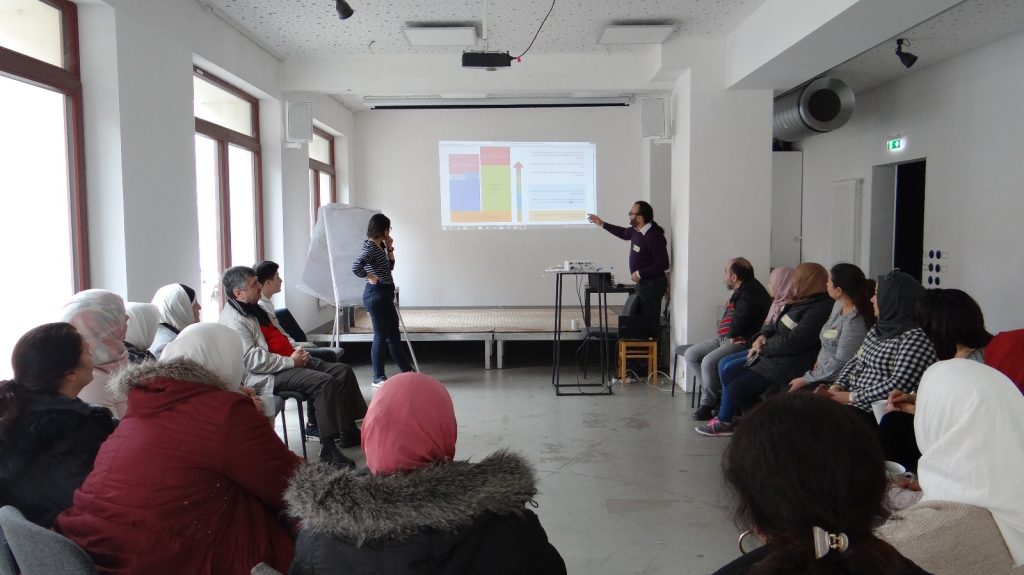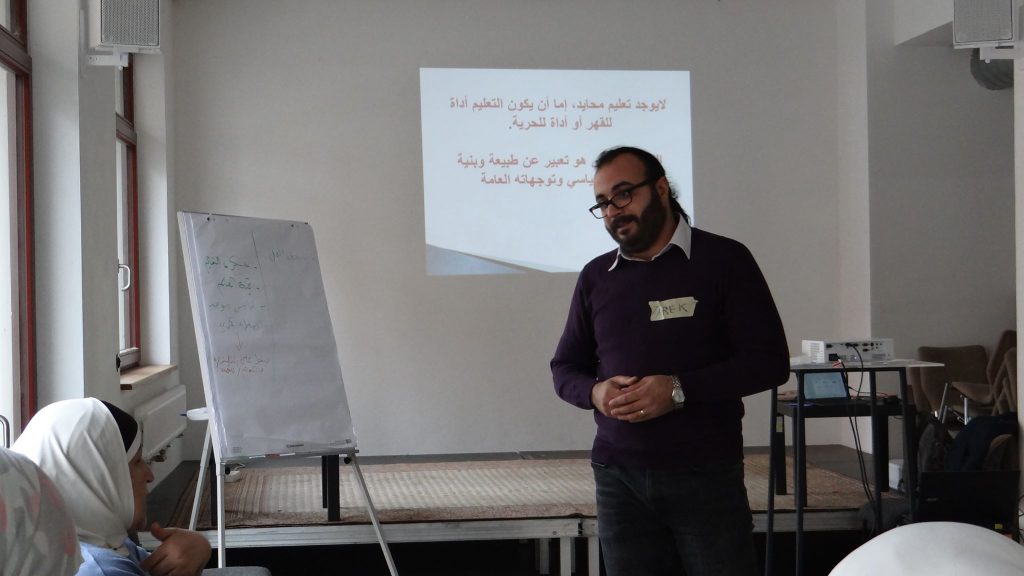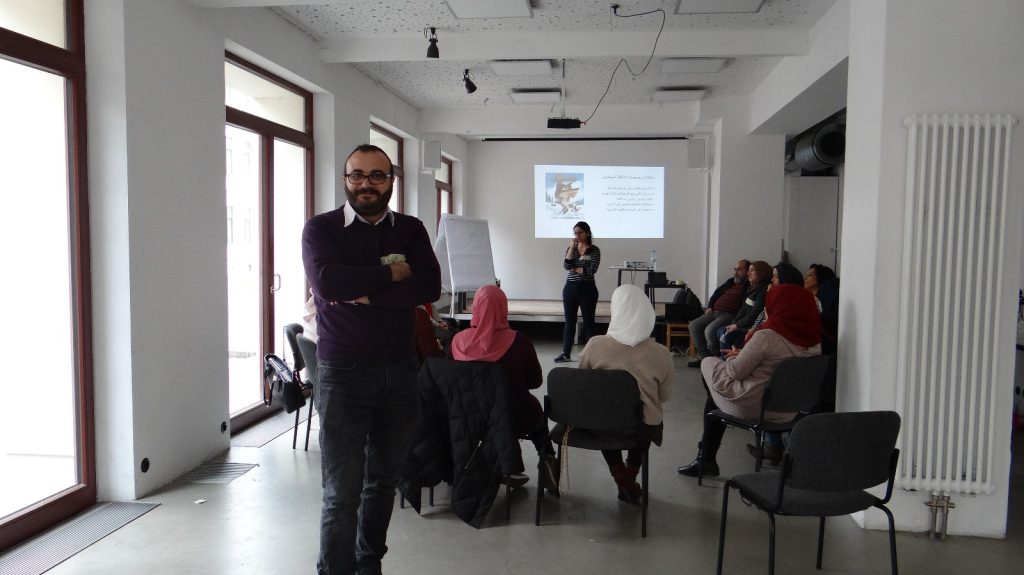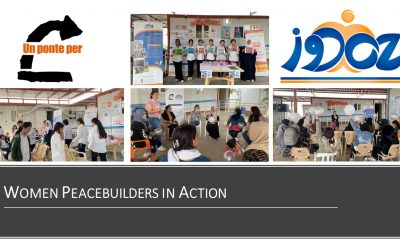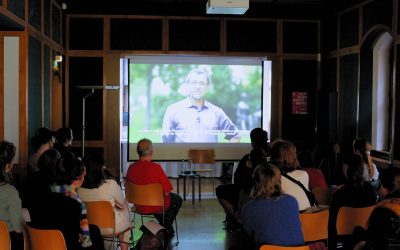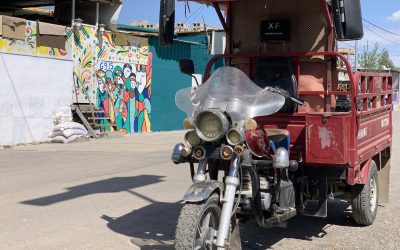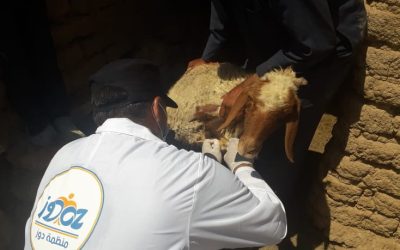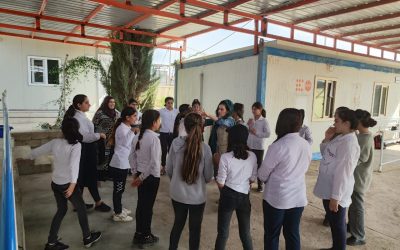Von Almanya nach Deutschland Project – Leipzig
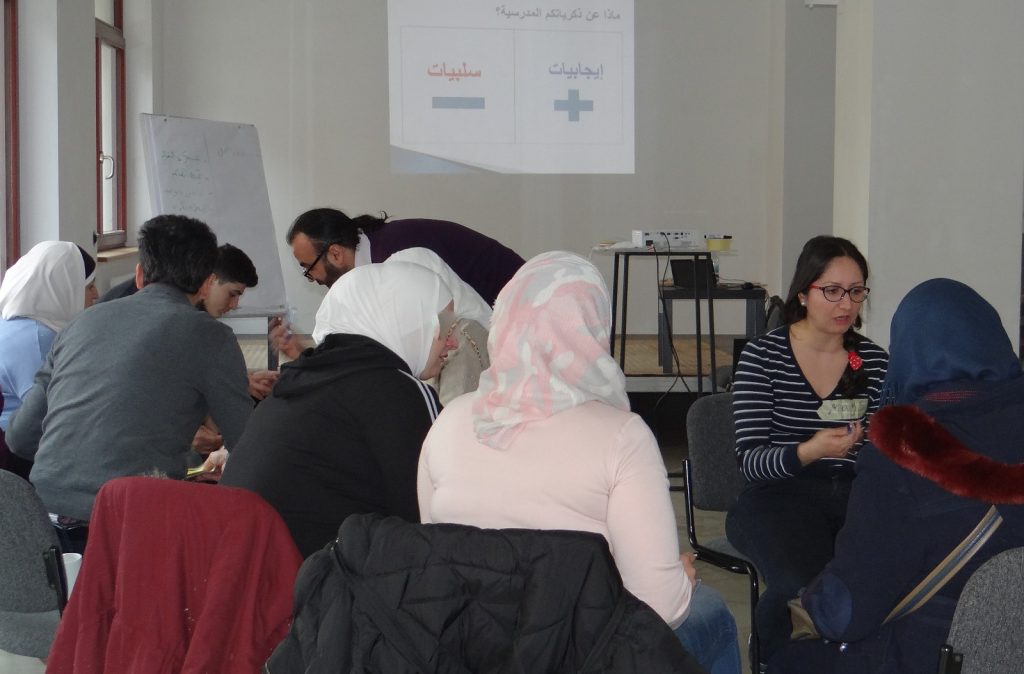
„From Almanya to Germany“ – Intercultural Workshops in Arabic!
The project is implemented in cooperation with the VDSH e.V. and funded by Federal Ministry of of Interior – BMI.
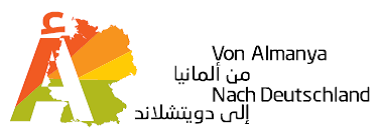
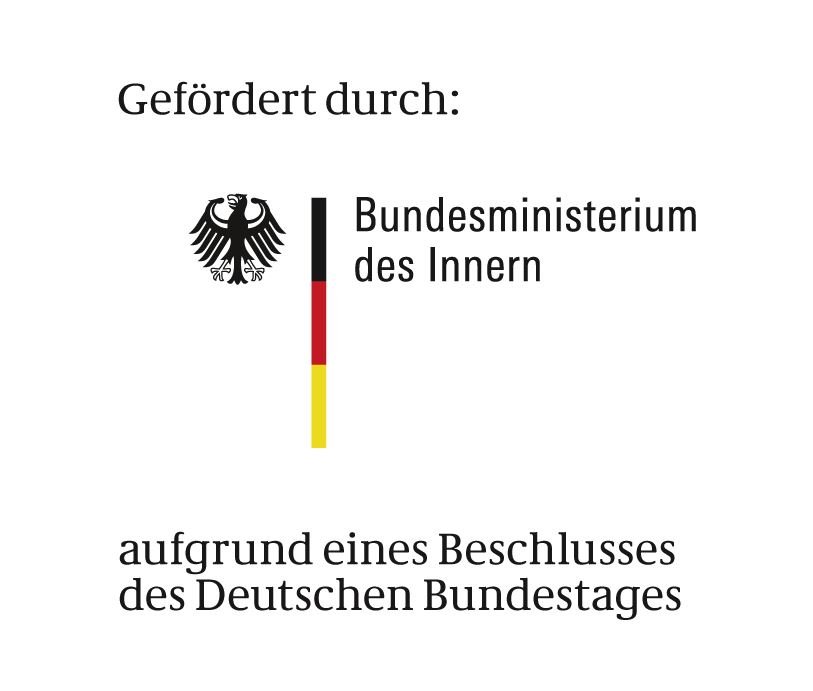
About the Project
It’s time again! Starting on December 18th workshops on the following topics will take place every month:
– Regional studies & intercultural sensitization
– Society & Family & Relationships
– Education & Working Environment
– Life in everyday German life
In interactive and varied workshops, we will address these topics, reflect on experiences and first impressions, and develop solutions to the challenges of everyday life in Germany. All in Arabic!
In addition, we will lead and exciting excursion in and around Leipzig every two months so that we can get to know our surroundings better.
The workshops are organized and conducted by DOZ e.V., an association that has distinguished itself for years as a competent mediator between German and Arabic-speaking society in Leipzig. The speakers are native speakers of Arabic and at the same time are role models for successful integration into German society.
Participation is free.
Applications and questions Please per
Email an julia.q@doz.international
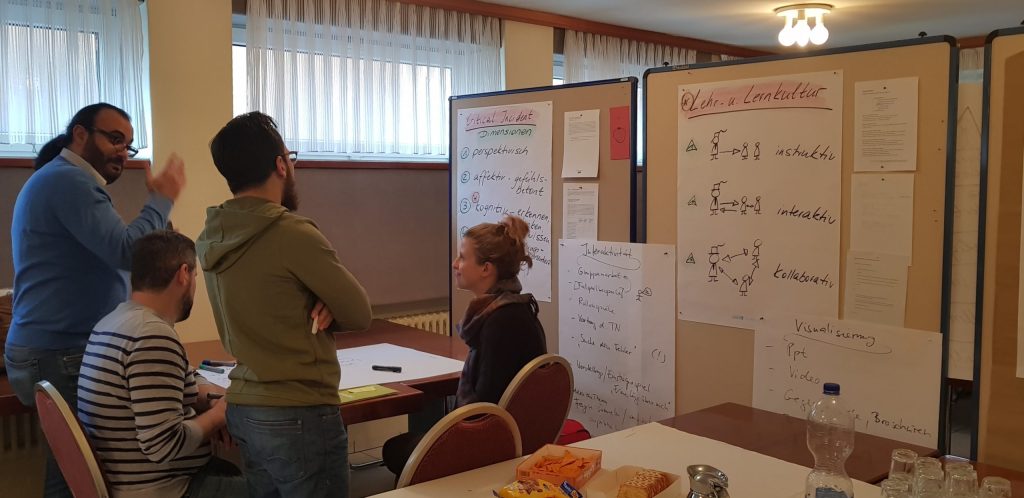
Activities Implemented Under The Project
Start of the New Project “From Almanya to Germany” – Introduction Event and Visit to Leipzig Christmas Market on 14.12.2018
On Friday, 14.12.2018, our new project “From Almanya to Germany” began. The project is a continuation of “Almanya in Arabic” and is also supported by the Federal Ministry of the Interior and coordinated by the Association of German-Syrian Relief Associations VDSH e.V..
To kick off the project, we met on December 14th for a meet and greet with men and women from Syria and Iraq in the DOZ office in Shakespearestr. 18, 04107 Leipzig. We discussed the future scope of the project and came up with the following topics that will take place every month:
– Regional studies & intercultural sensitivity
– Society & Family & Relationships
– Education & Working Environment
– Everyday life in Germany
In interactive and varied workshops, we will exchange views on the above topics in Arabic, reflect on our experiences and first impressions, and look for solutions to the challenges of everyday life in Germany.
During the meeting, participants shared their individual interests and needs, which will be taken into consideration in the planning of future events.
Important questions that were discussed include:
– How do I find a KITA place for my children?
– What rights do I have?
– How can I become active in civil society and politics?
– How can I be included in society?
– What can we do in the face of racism and discrimination?
– How can I learn the German language, to enter the world of education or work?
In addition, there will be an exciting trip in Leipzig and the surrounding areas every two months so that participants can get to know the area better. On December 14, we had our first excursion to the Leipzig Christmas Market after meet and greet. We learned about the history, growth and traditions of one of the oldest Christmas markets in Germany and sampled traditional food and drinks.
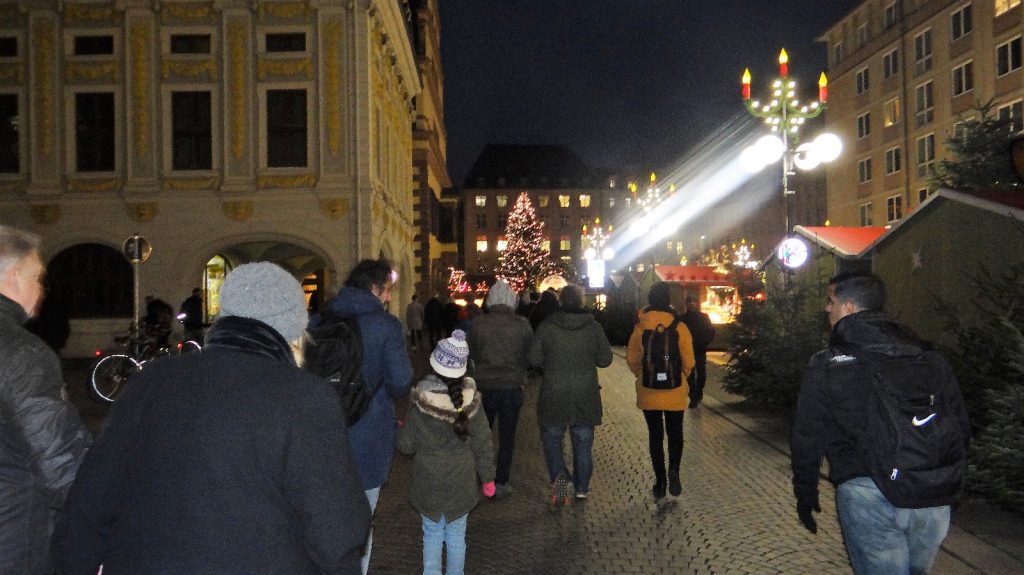
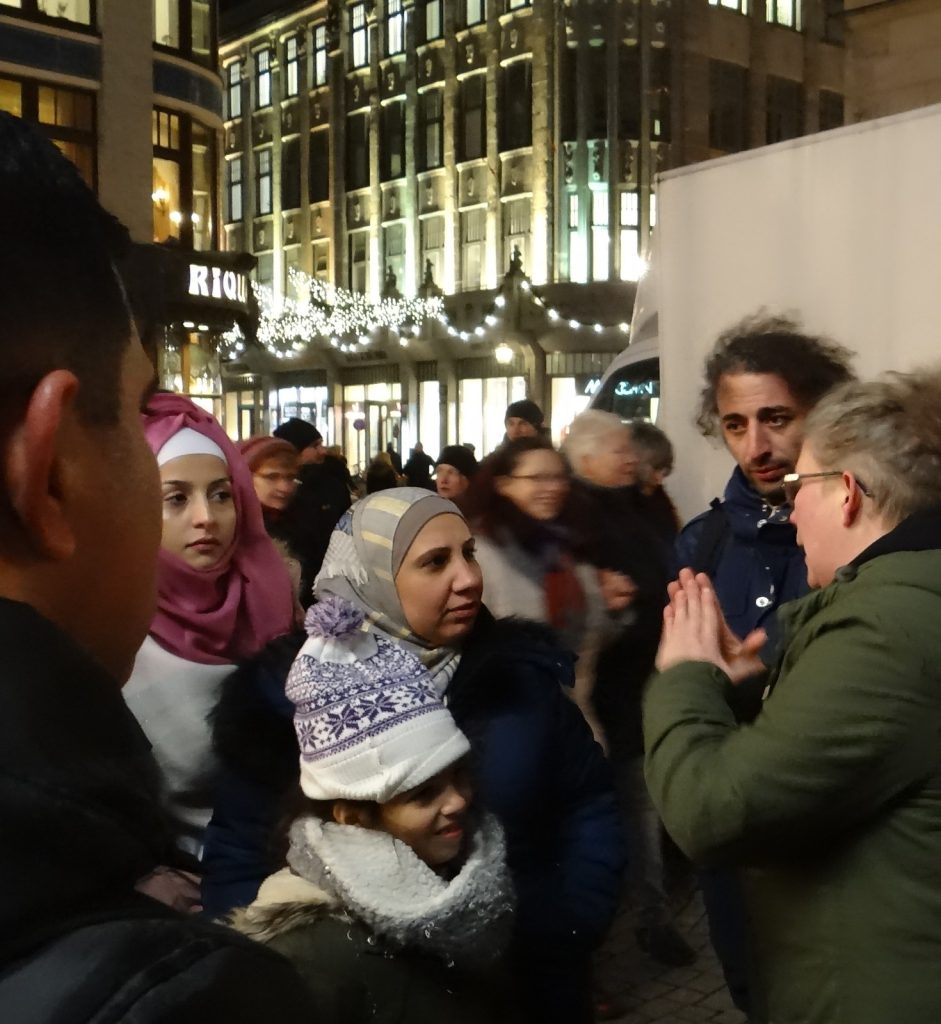
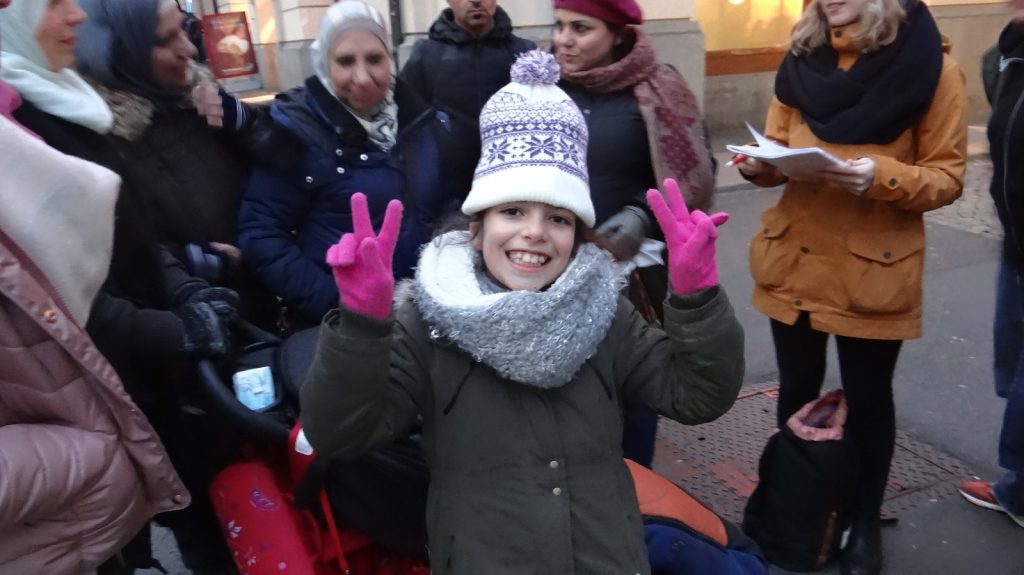
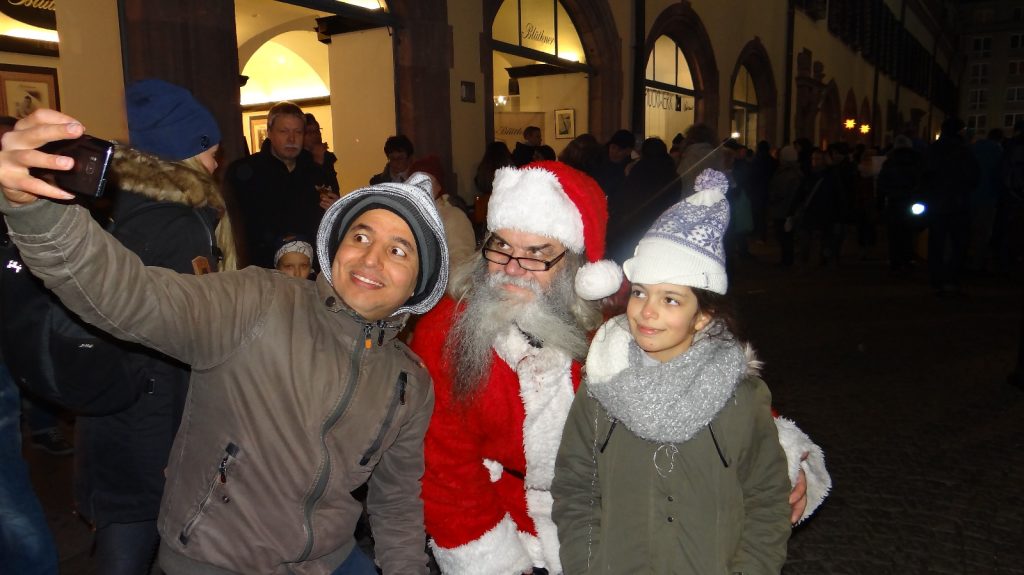
What Does Culture Mean? – The first “From Almanya to Germany” Workshop on 21.12.2018 in Leipzig
On 21.12.2018, the first workshop of our new project “From Almanya to Germany” took place. Together with a group of women and men from Syria and Iraq, we spent a day in the Pöge House in Leipzig and discussed culture and intercultural communication. The participants openly exchanged their own experiences and talked about the importance of culture. They also discussed prejudices and misunderstandings that can arise when people are not familiar with each other’s culture.
The speaker introduced case studies with which the participants could easily identify. These practical examples of relationships between parents and teachers or between employers and employees were used to find out how misunderstandings arise and how to resolve them, taking account the multiple perspectives that could be involved.
Participants learned new information, exciting discussions and case studies that were applicable to their everyday lives and opened up new ways of solving potential problems.
While the adults exchanged ideas about culture in the workshop, the children of the participants played in the neighboring room under adult supervision.
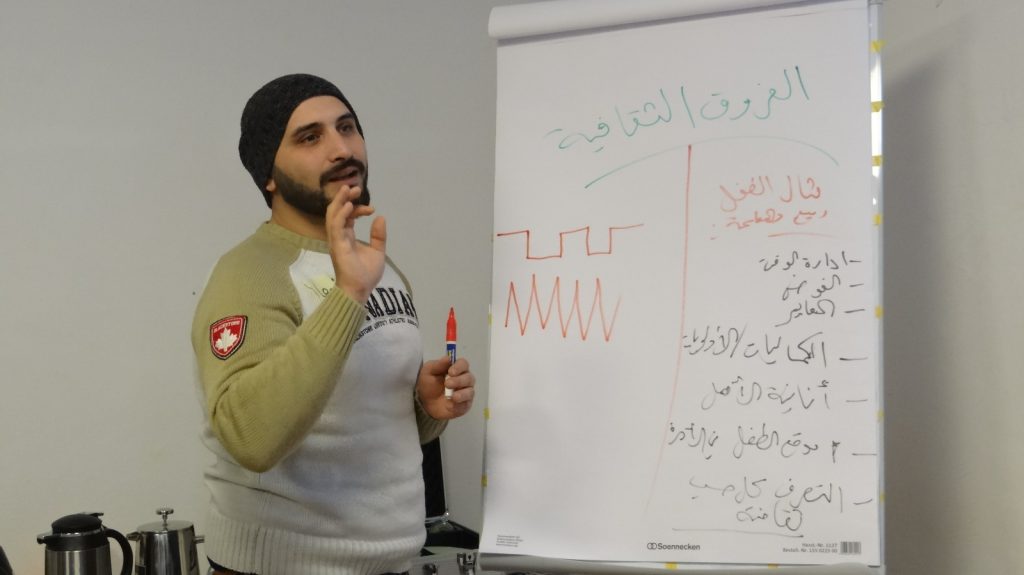
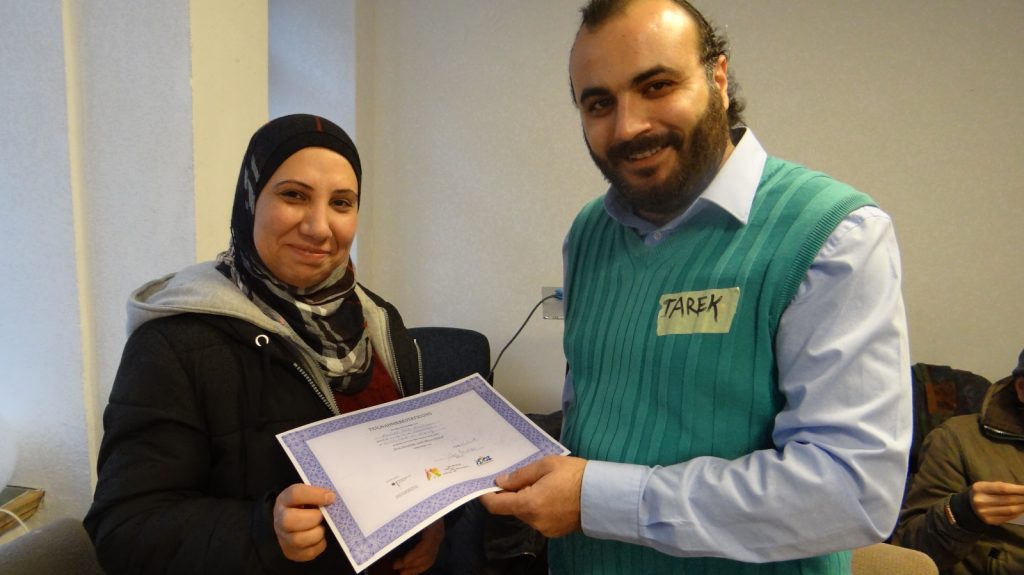
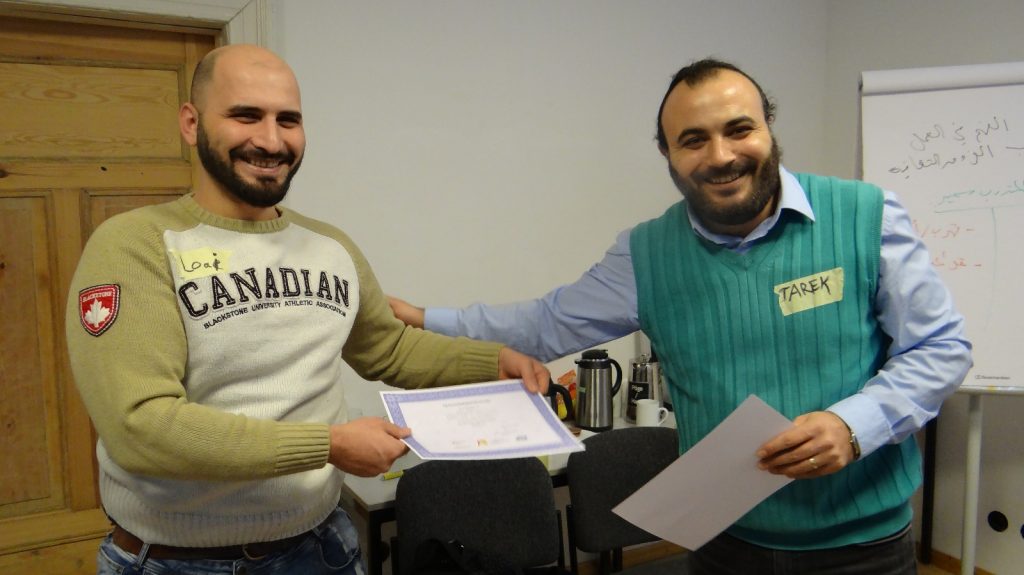

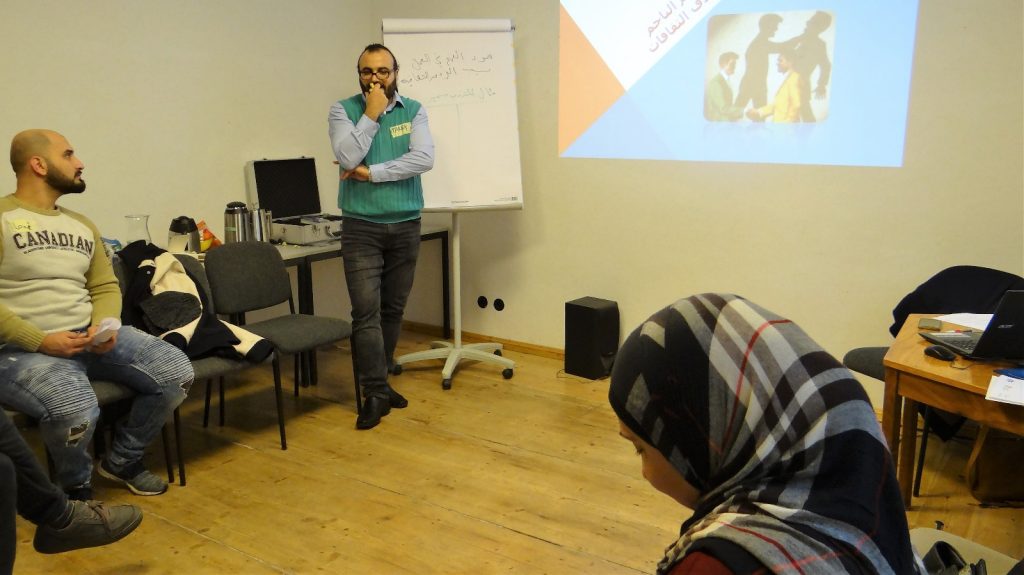
How Can I Become Politically Active in Germany? – The 2nd workshop in “From Almanya to Germany” on 22.12.2018, Leipzig
On Saturday, 22.12.2018, the second workshop of our project “From Almanya to Germany” took place in the Pöge-Haus in Leipzig.
To start, the speaker gave insight into modern German history and the political system in Germany. Subsequently, the political life and German parties were discussed. As part of this, a participant discussed his own experience as a party member in congress and his ability to vote. These experiences served as a very positive example of political participation.
The question was then asked as to whether refugees can be active in politics and, if so, how. As a basis for this discussion, all participants completed a questionnaire. With this they were able to question: Do I have interest in politics? Why or why not? What does political participation mean for me? How well do I know about Germany’s political system? Two participants admitted that they had no idea of German parties before the workshop and were thankful for this new knowledge.
Subsequently, the group talked about the German constitution and the role of civil society in politics. Here we brainstormed how each of us could get involved with the community and politics. For this, different options were listed and shared in the group, such as membership in clubs or social groups and parties. The participation in activities of DOZ e.V. was also part of the political participation of the participants.
While the adults were discussing political issues in the workshop, the children of the participants in the adjoining room played under the supervision of childminders.

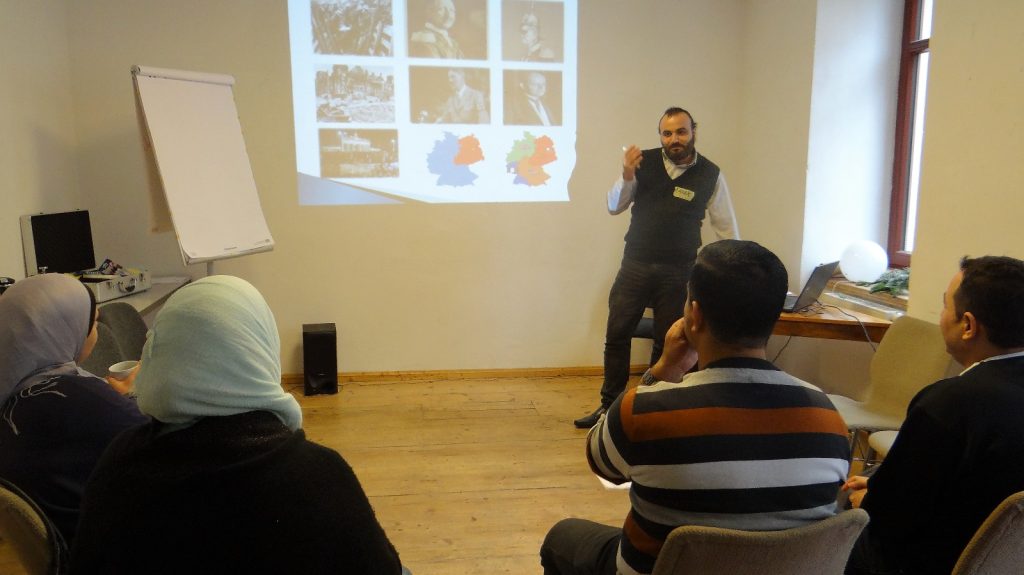
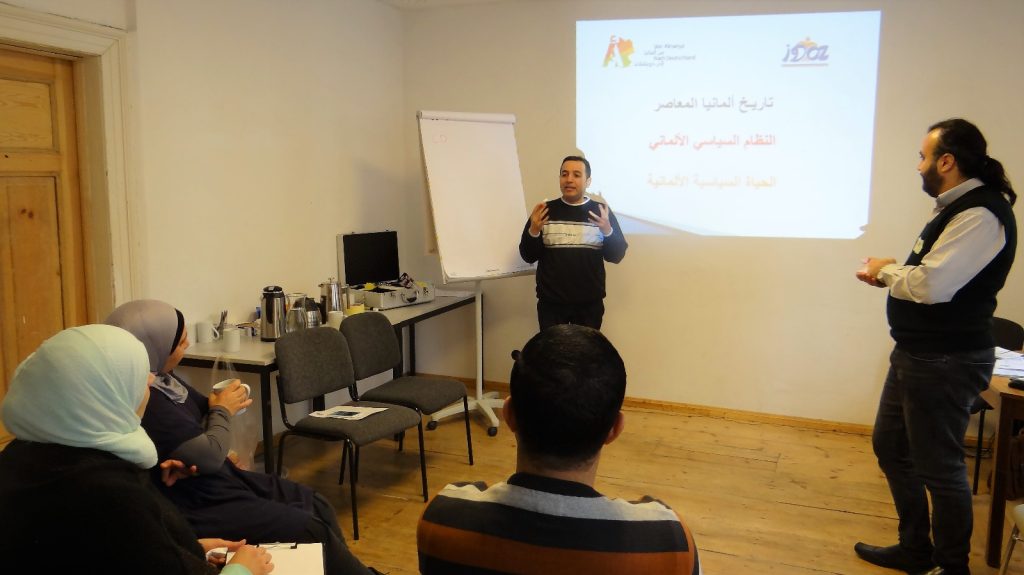
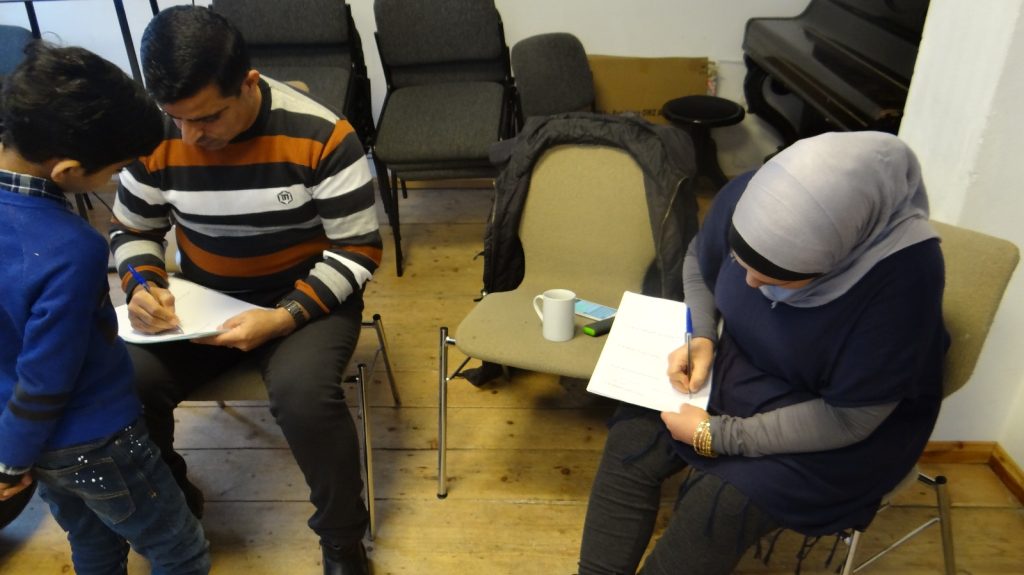
Working in Germany: Obstacles and Opportunities for Migrants – The 3rd workshop “From Almanya to Germany” on 04.01.2019 in Leipzig
DOZ and the project team “From Almanya to Germany” wishes you a healthy new year! We have new and exciting projects to kick off the year!
Today, January 4th, the third workshop in our project “From Almanya to Germany” took place in the Pöge-Haus, Leipzig. This time it was about the German job market. In the first part, the participants were given basic information, facts, and figures about the labor market. Together, they developed commonalities and differences between Germany and Syria. For example, it was noticeable that in Germany you are paid according to the working hours, whereas in Syria you are paid for a service provided, regardless of the duration. More differences were noted in the gender distribution in the working world.
The second part of the workshop was dedicated to the difficulties and opportunities that refugees have in the German labor market. On one hand, the participants in two groups dealt with problems that could make access to the labor market more difficult. These include discrimination, poor language skills, age, bureaucratic hurdles, differences between cultures, and associated misunderstandings. On the other hand, there were motivating factors that could facilitate access and success. Participants noted the opportunities to help at a local, societal, and state level. Germany has diverse opportunities for furthering education and experience, such as trainings, internships, and equal access for men and women. The subsequent evaluation showed that there are many hurdles, but just as many opportunities. This motivated the participants, especially the women, to become active themselves and not to be afraid of the German labor market.
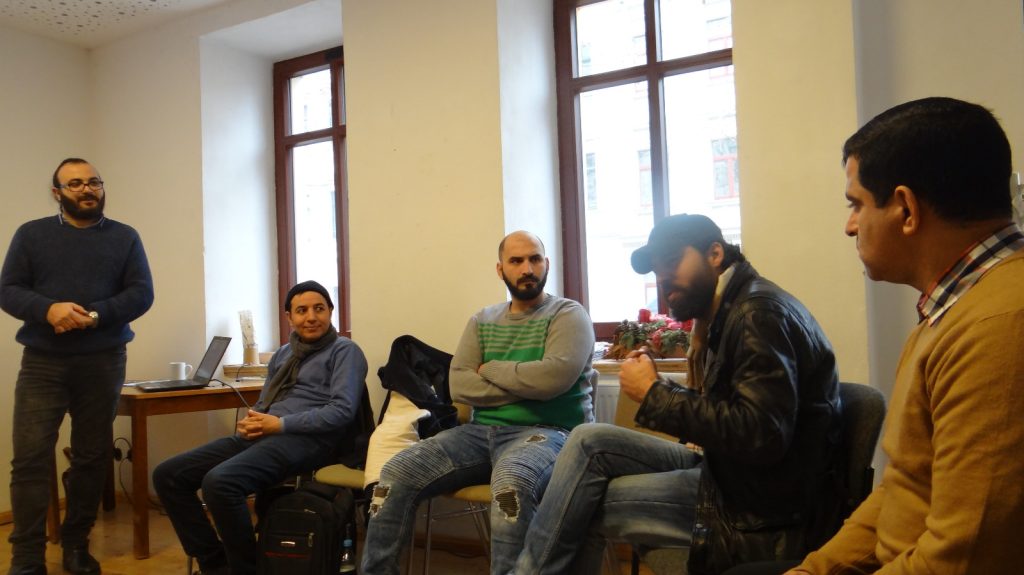
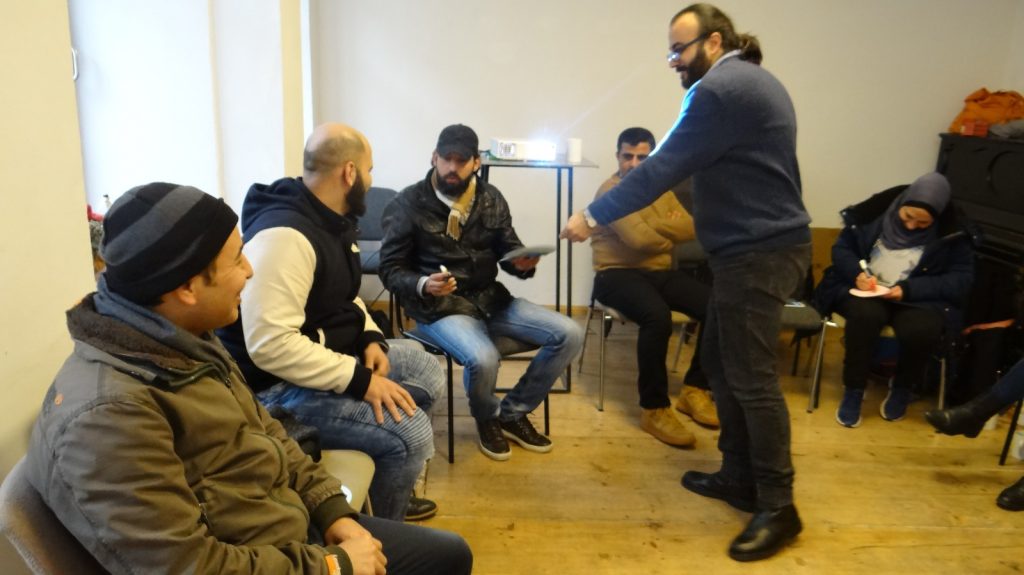
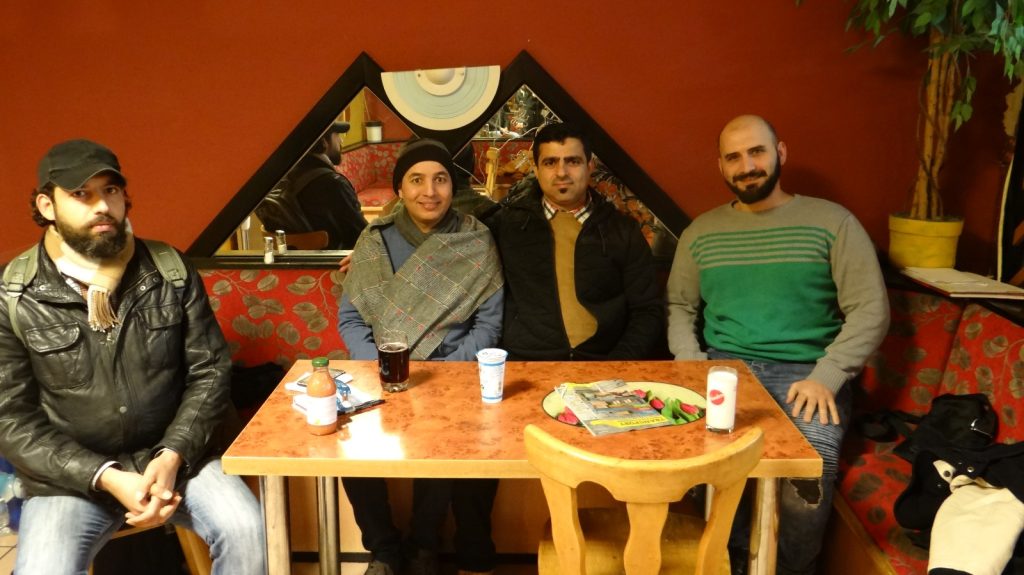
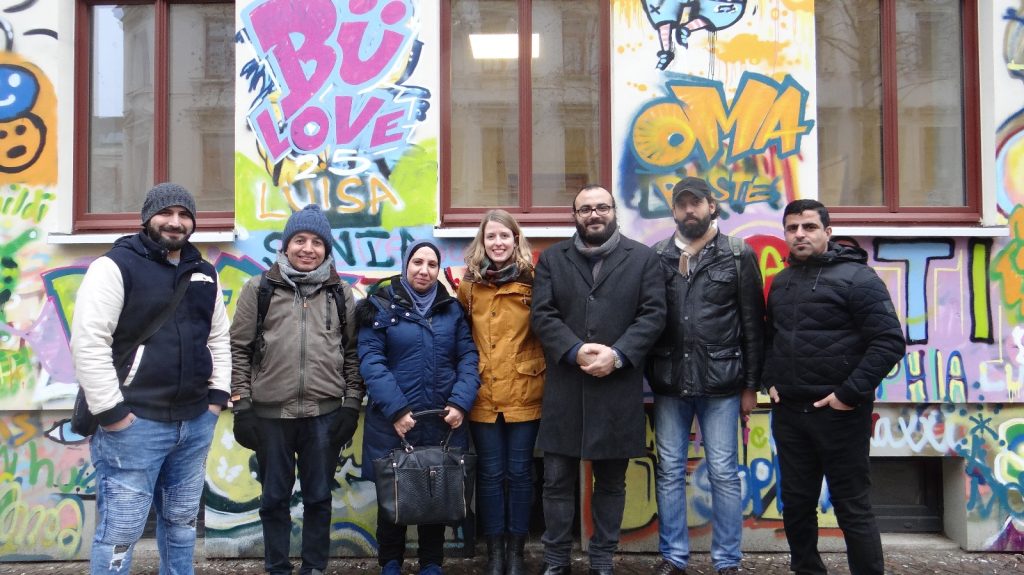
Religion in Germany – From Almanya To Germany Workshop on 12.01.2019 in Leipzig
On 12.01.2019 our “From Almanya to Germany” workshop took place in the Pöge-Haus in Leipzig. During this session, we discussed the topic “Religion in Germany“ with newcomers to Leipzig from Syria and Iraq.
The first part included general information and statistics about different religions in Germany: What religious groups are there and what is the breakdown? The group also talked about the importance of religious freedom.
The second part focused on the relationship between religion and state. With the group’s input, answers and ideas were collected on what secularism means. Germany was clearly understood as a secular state. Misunderstandings were also cleared up, e.g. that secularism could be equated with godlessness.
In addition, the participants discussed the possibility of a mosque tax corresponding to a church tax.
During the lunch that followed, these topics were further discussed. We were very happy about the lively discussion and the openness of the participants.
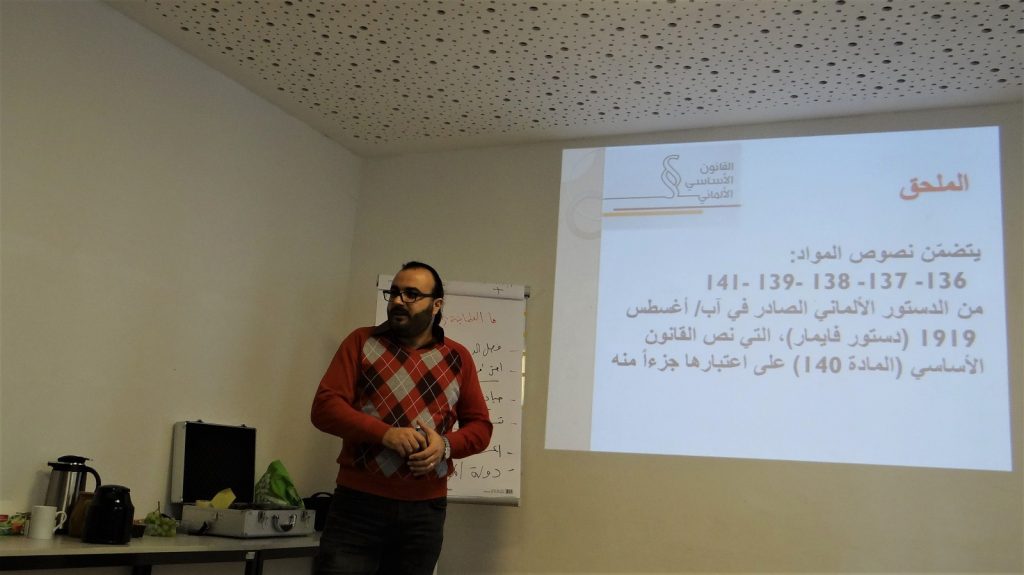
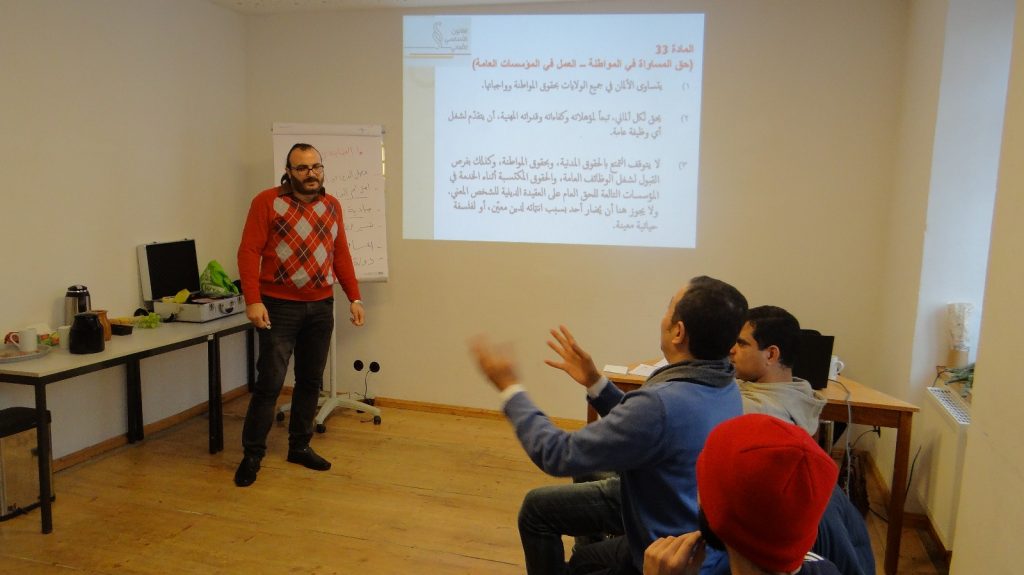
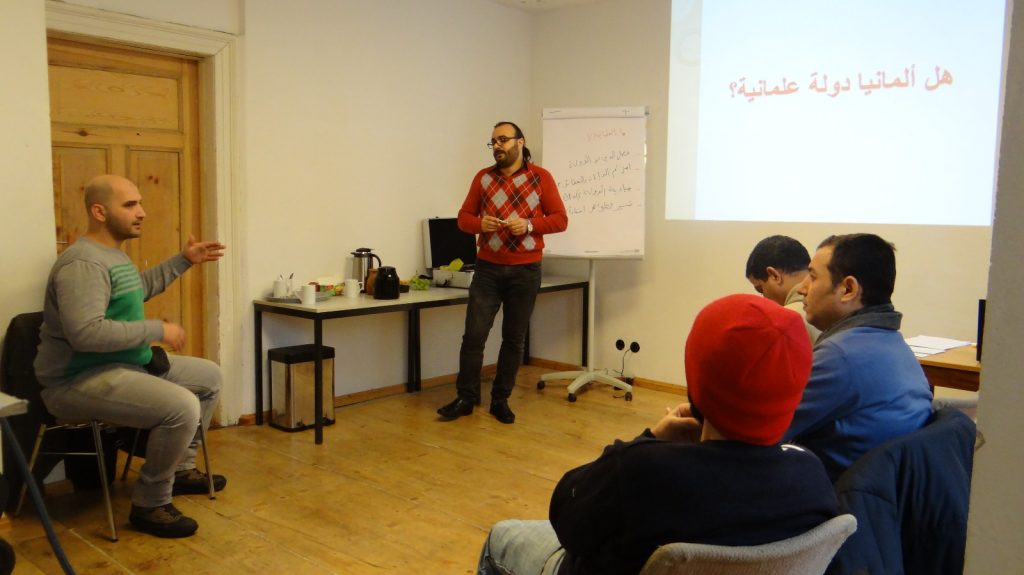
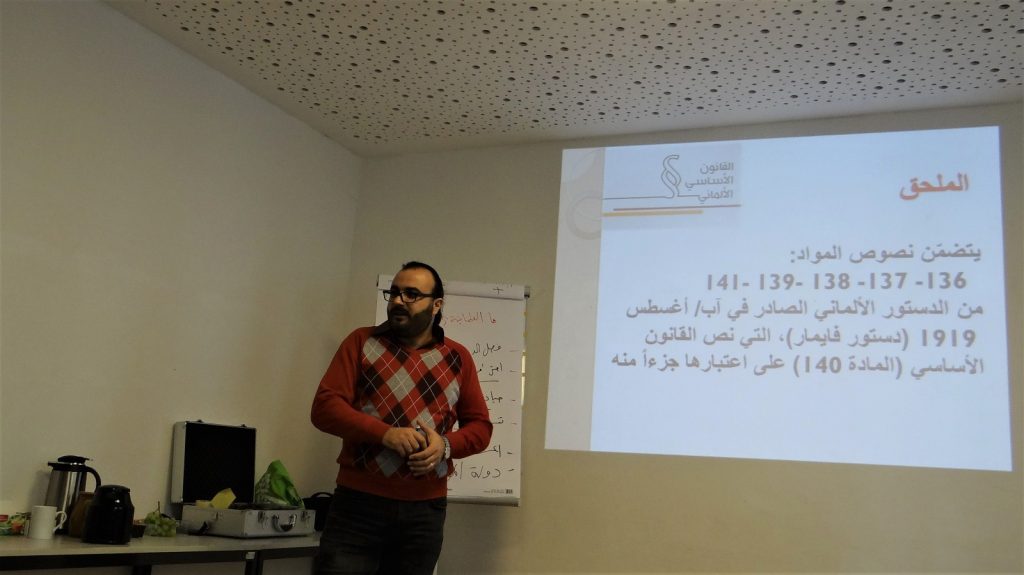
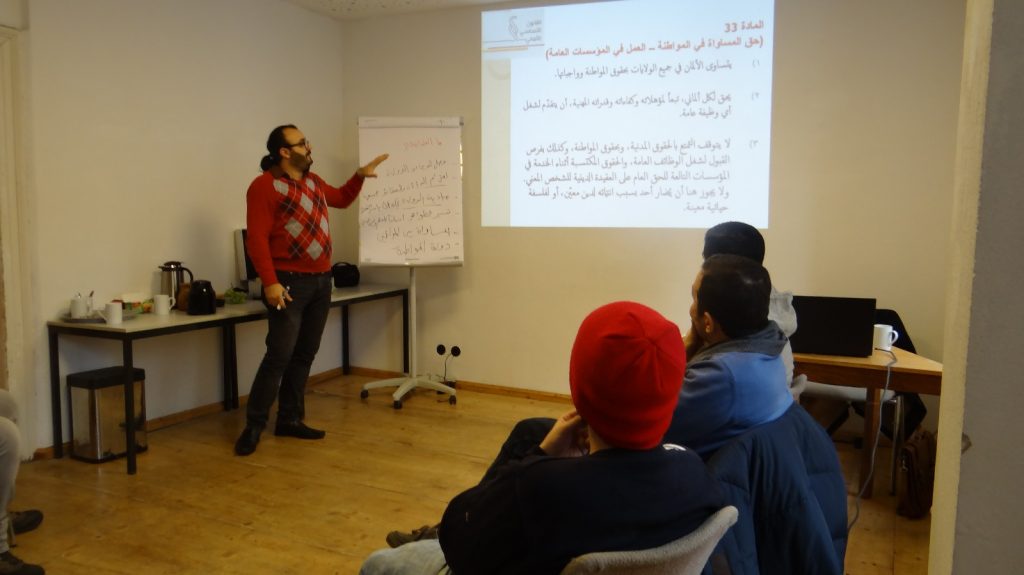
Social Relations in Germany – “From Almanya to Germany” Workshop on 09.02.2019
This month, within the framework of our ‘Von Almanya nach Deutschland’ workshop, we were discussing social relations in Germany. On 09.02.2019, a group of 23 participants, made up of 15 women and 8 men, from Syrian and Iraqi backgrounds, came along to the Pöge-Haus socio-cultural center in Leipzig. Together with DOZ e.V and DaMigra MUT-MUTMACHERINNEN*, they took the opportunity to share their experiences, gain new knowledge, and discuss the open questions and problems that arise for Arabic-speaking people on a day-to-day basis.
As part of the workshops, we addressed a range of different social relations in the family, and with friends and neighbors. Group discussions provided the backdrop for highlighting the cultural differences – but also similarities – between family relations, and made it possible to examine the reasons behind the differences more closely. One significant issue was domestic violence, which was discussed in an open space. Together we tried to find solutions for overcoming patriarchic thoughts and structures, for strengthening children’s and women’s rights, and for building democracy within families.
One key issue was the relationship between friends and neighbors. Misunderstandings regularly arise in this area as a result of different cultural ideas, e.g. concerning recycling and legal rest times. The participants learned how to avoid such misunderstandings or to handle them more effectively. In future, this will foster greater understanding between them and the German host society, since the participants are not only able to better represent their own opinions and perspectives, but also understand and respond to other people’s points of view. This lays the foundation for intercultural dialog and mutual understanding and also creates a balance between keeping the culture of their home countries and adapting to the new culture of the host country.
Over a shared lunch break, everybody forged strong new bonds with one another.
While the adults were busy with the workshop, a professional childminder took care of the children in the adjoining room. They also enjoyed a fun-filled day.
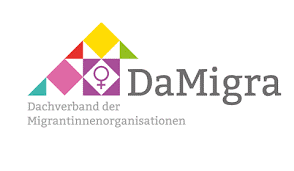

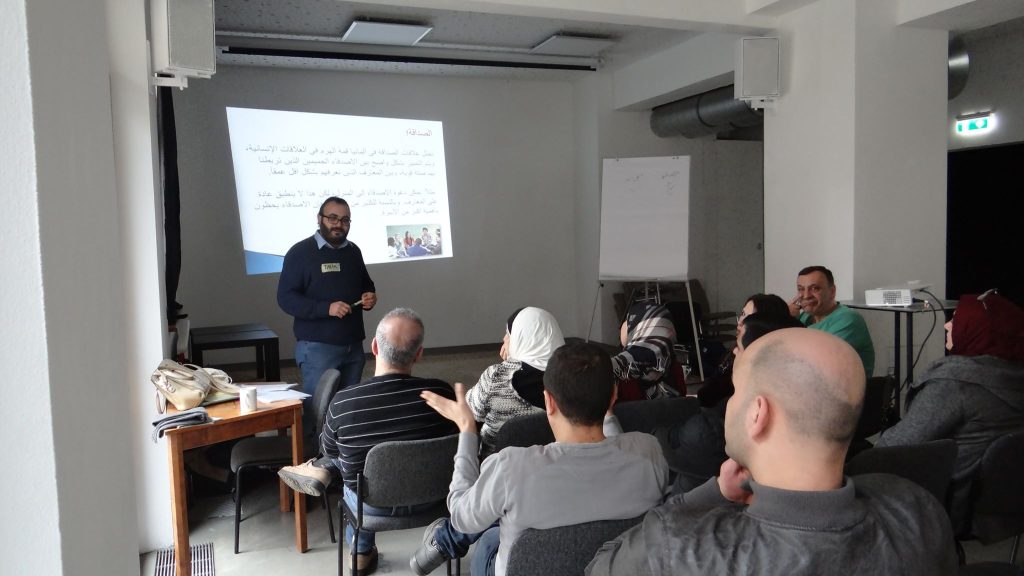
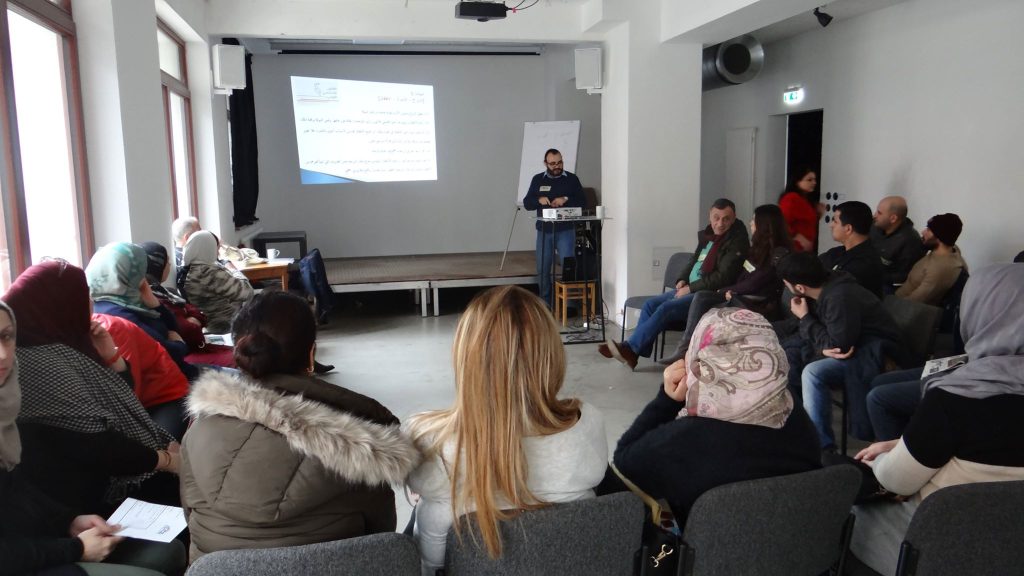
Religion and Politics in Germany and the GDR Times – “From Almanya to Germany” Excursion on 16.02.2019 in Leipzig
Discovering Leipzig together, getting to know the history of Leipzig in connection with the history of Germany as a whole and learning more about religion and politics in Germany…these were the goals of our excursion on 16.02.2019. This took place within the framework of the DOZ project ‘Von Almanya nach Deutschland’ and in cooperation with the DaMigra project ‘MUT-MACHERINNEN*’. The day out generated a great deal of interest: 24 adults, including 13 women and 11 men as well as 10 children were all involved.
We all learning something about the history of Leipzig and the GDR. As part of a walk through the city centre, including a visit to Leipzig University and the St. Nicholas Church, the participants learned more about the Peaceful Revolution and the relationship between religion and politics in the GDR. We then had a guided tour of the exhibition ‘Dictatorship & Democracy in Germany since 1945’ in the Zeitgeschichtliches Forum. The tours were offered in simple German. A language mediator was also on hand to translate into Arabic.
During the tour, one thing that stood out in particular was how many similarities the participants recognized between the history of Germany and their home country. Most were originally from Syria. Many of them saw the Peaceful Revolution in 1989 as an example.
To round off the excursion, everyone enjoyed a shared lunch where it was possible to forge strong new bonds.


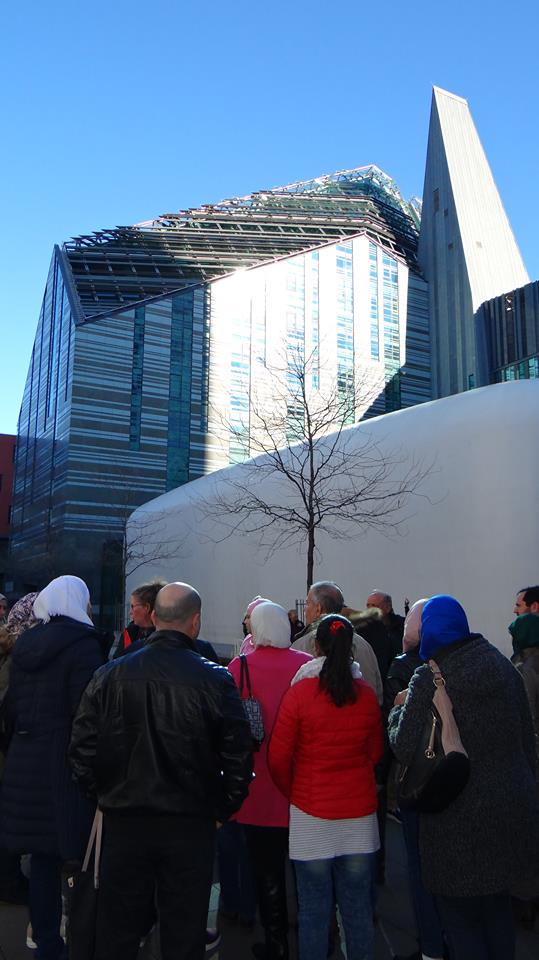
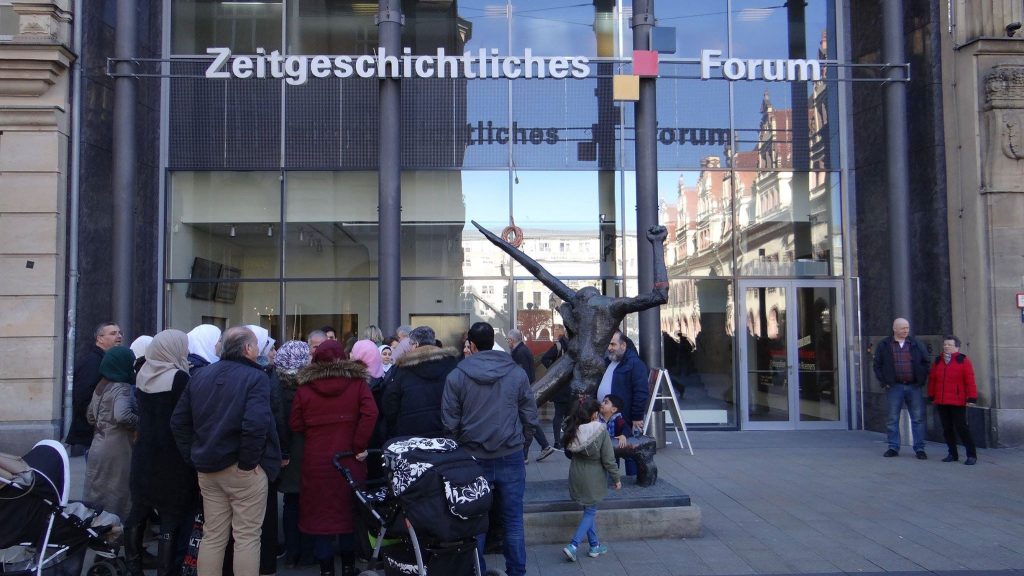
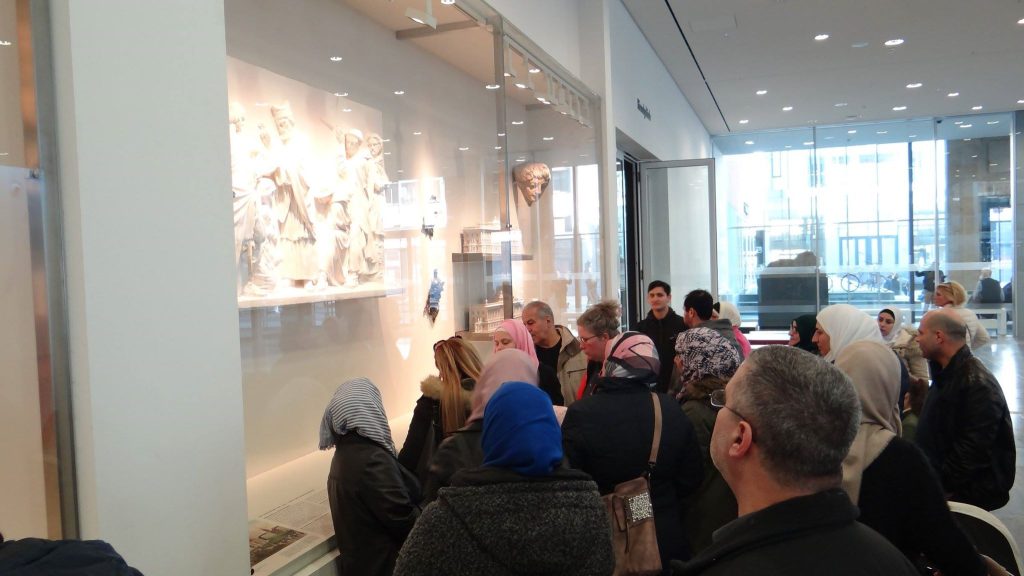
The German Education System – “From Almanya to Germany” Workshop on 09.03.2019 in Leipzig
Within the framework of our ‘Von Almanya nach Deutschland’ workshop on 09.03.2019 we discussed the German Education System. Over 20 persons attended this event that was organized by DOZ e.V. under the auspices of the BMI-funded ‘Von Almanya nach Deutschland’ project and in cooperation with the MUT-MACHERINNEN* project by DaMigra.
Before going into detail about the German education system, the participants engaged in conversation with the speakers about the cultural differences between the education systems in the participants’ countries of origin (primarily Syria and Iraq) and in Germany.
At this workshop we had the honor of being joined by a guest speaker, who closely analyzed the German education and pedagogic system as part of her degree and was now in a position to share her findings with the participants.
Following this, the participants had the opportunity to form groups and use practical examples to discuss the difficulties faced by new arrivals and their children at German schools. It was then possible to develop joint solution-approaches.
A shared lunch provided the time and space for a more personal exchange.
While the adults were busy with the workshop, a professional childminder took care of the children in the adjoining room. They also enjoyed a fun-filled day.
